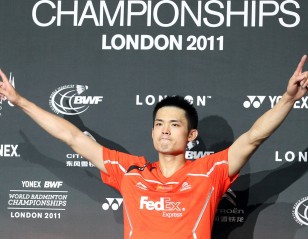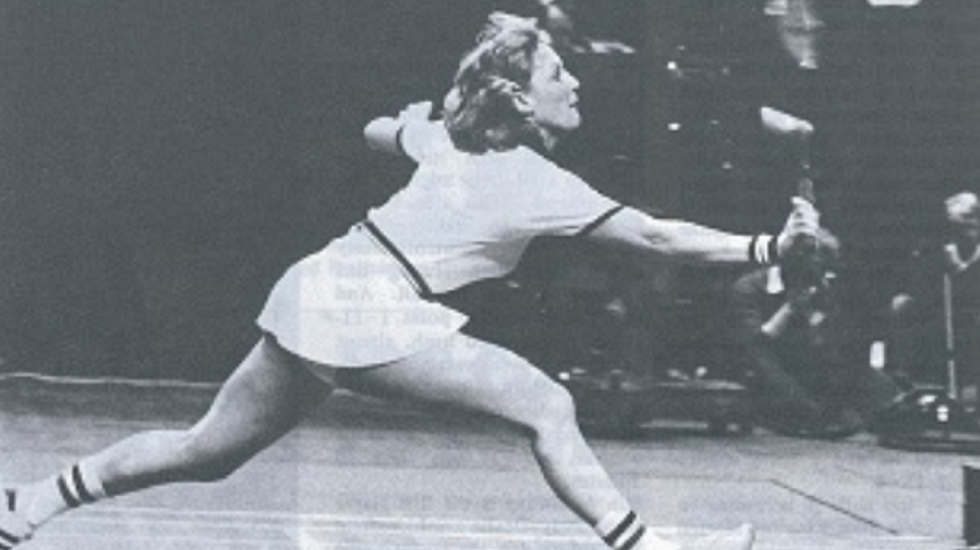
Famous Five and the Good Old Days – 25th Edition World C’Ships
It will be like old times when some of badminton’s golden oldies converge on Basel, Switzerland, in a few weeks.
But for the England contingent involved in the 25th edition celebrations of the World Championships, it will be more like a grand reunion as the players who became household names in the badminton world set a standard for others to follow.
Gilks, Perry, Tredgett, Talbot and Stevens are names known to everyone who followed the sport through the 1970s and 80s, especially a certain young journalist new to badminton. These were the days when reporters and players were on first-name terms. Today it is different. You don’t get to know a player in the mixed zone the same way.
But there were plenty of opportunities to get to know England’s Famous Five. Mike Tredgett, Gillian Gilks and Ray Stevens are among the elite group of 14 who have played 100 times for England. BWF commentator Gill Clark tops the list on 145 caps and Nora Perry would have joined them but for taking two timeouts to raise a family.
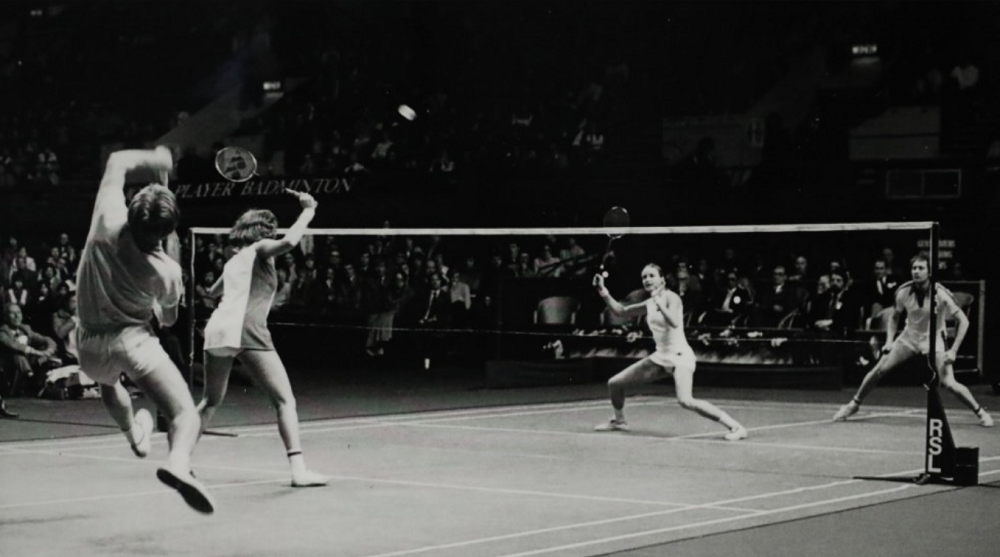
A lot of readers won’t appreciate that Derek Talbot and Gilks won the mixed doubles when the sport first appeared in the Olympics. It was a demonstration sport at Munich way back in 1972.
Five years later England’s had six on the podium at the inaugural World Championships at Malmo in Sweden in 1977.
Gilks won silver in women’s singles and mixed doubles with Talbot. Perry took bronze with Mike Tredgett in the mixed and with Margaret Lockwood in the women’s doubles, while Tredgett also gained a bronze with Ray Stevens in the men’s doubles.
England also won a singles bronze through Lockwood and, not to be outdone, Scotland’s Billy Gilliland and Joanna Flockhart were also mixed doubles bronze medallists. What a powerful GB squad they all would have made had badminton been a full Olympic sport in those days.
Of that Anglo-Scottish contingent all but Tredgett, Gilliland and Lockwood, who lives in Canada, will be in Basel to talk about old times and to compare the sport of today with the good old days when men’s matches were played to 15 and women’s singles to 11 with points only scored when serving.
The closest final in 1977 was the women’s singles when Lene Koppen beat Gilks 12-9 12-11. Gilks also lost to Koppen in the mixed when she and Talbot went down 15-12 18-17 to Koppen and Steen Skovgaard.
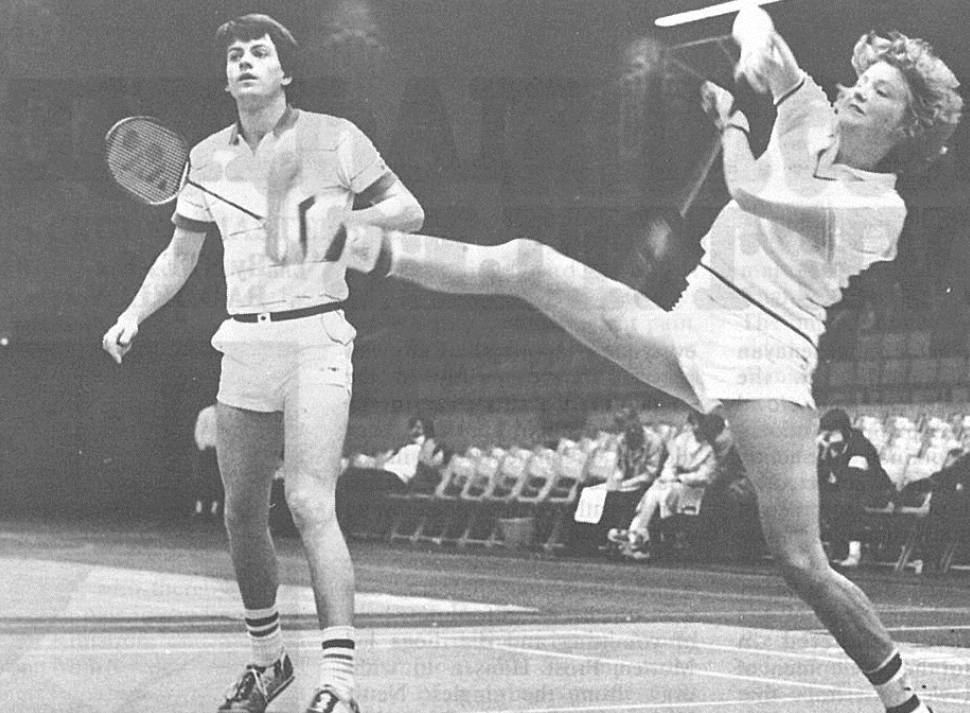
For Talbot, who now lives in Malta, the memories are slightly different. “The first World Championships seemed strange to me and it was difficult to understand the importance of the event as previously players throughout the world had considered the All England Open to be badminton’s ‘World Championships’ much like Wimbledon was to tennis in the same era.”
Talbot is also quick to point out the difference between past and present. “Badminton has become much faster and tactics have changed mainly due to improvements in racket design.
“Defensive play is better and we don’t see the impossible-to-return flattened shuttle from a smash with a heavy wooden racket – a Svend Pri special.
“There is less net play and less deception as a means to score an outright winner.
“Now almost every player in a tournament is super fit so every round is tough. Badminton has improved in many ways, most noticeably in the women’s game.”
Talbot also highlights the other big differences: “The players in my day mixed socially as well as competing fiercely on court. The financial rewards were much less so the benefits of adopting a truly professional separatist lifestyle were the choice of the few rather than the many.”
The social aspect is something Talbot is looking forward to in Basel. “It’s always great to catch up with my badminton family. The chat brings out superb memories from deep in the mind which are never thought of in the course of a normal day.
“I look forward to my annual reunion in Scotland with Dave Eddy, Bob Powell, Kevin Jolly, David Hutchinson and Ray Stevens. It is a week of laughter which is life’s best tonic. Which is why I am looking forward to seeing you and the rest of the gang in Basel.”
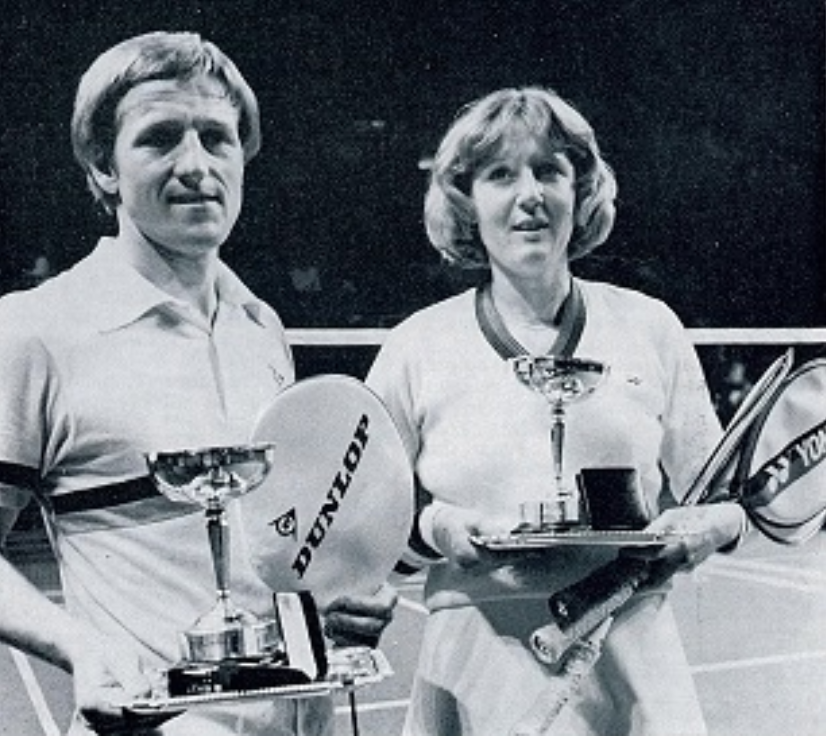
Sadly, Tredgett will be one gang member missing because of a clash of diary dates.
Today he enjoys playing cricket around the UK. He has been a member of the Lord’s Taverners for 20 years and enjoys “meeting and playing with some of the world’s greatest cricketers.”
Of 1977 he says: “It was a long time ago and I was not one for looking back. But I won two bronze, with Nora and Ray. I think that my partnership with Nora had just started so I guess a bronze would have been an OK result.
“I loved visiting Sweden and I remember Malmo was a lovely city.
“I reached the World Championships finals twice. The other time in 1980 with Nora in Jakarta where we lost to Christian [Hadinata] and Imelda [Wiguna], beaten by the heat and line calls. It was a big regret.
“In 1983 I reached the men’s doubles final with Martin Dew in Copenhagen. We were odds-on to win but it’s difficult playing singles against a good doubles pair!”
Last word to Stevens, who still keeps in touch with Perry and Talbot in particular.
“That Europe did well in the inaugural championships was wonderful and I recall that Malmo staged a great event.
“My lasting memory is of a great England team is count the medals and compare!”
**
To honour the medallists of the first World Championships, BWF has organised a reception on the final day of the TOTAL BWF World Championships 2019. Among the attendees are Flemming Delfs, Lene Koppen, Gillian Gilks, Nora Perry, Steen Skovgaard, Derek Talbot, Ray Stevens, Thomas Kihlstrom, Etsuko Toganoo, Emiko Ueno and Joanna Flockhart.
World Championships News
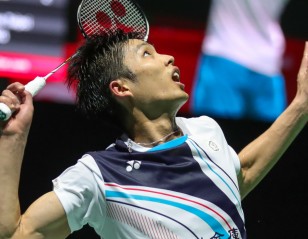
Lessons Learnt, Parting Perspectives 14 September 2019
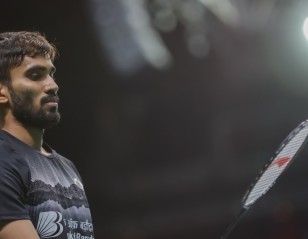
Kidambi Srikanth – A Search for Form 13 September 2019
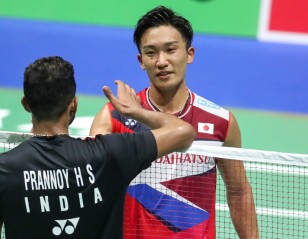
Momota, in the Eyes of his Opponents 12 September 2019
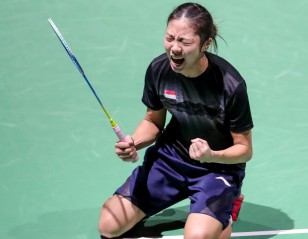
Recap: Upsets at the World Championships 10 September 2019
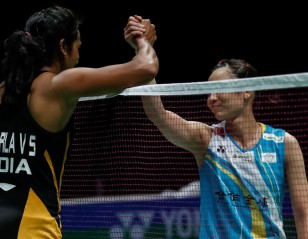
Recap: Memorable Matches of the World Championships 8 September 2019
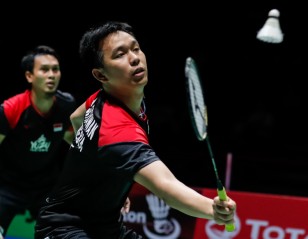
Highlights of the World Championships 7 September 2019
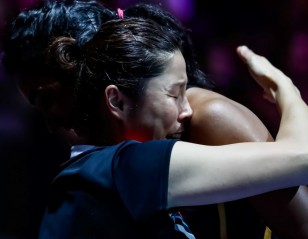
Played ‘Two’ Perfection – Basel 2019 4 September 2019

Badminton, Ice Hockey and the World Championships 4 September 2019
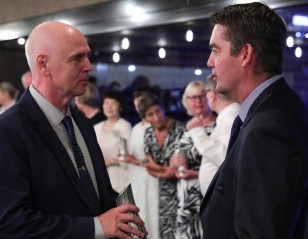
Three-Event Titan – 25th Edition World C’ships 3 September 2019
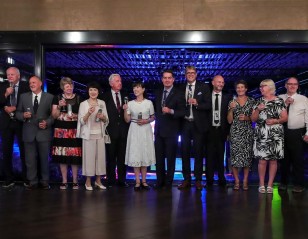
Legends of ’77 – 25th Edition World C’Ships 31 August 2019
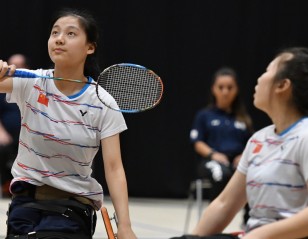
Para Badminton Event Comes to a Close – Basel 2019 27 August 2019
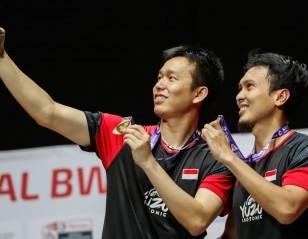
Wristy Trickery Wins the Day – Basel 2019 26 August 2019
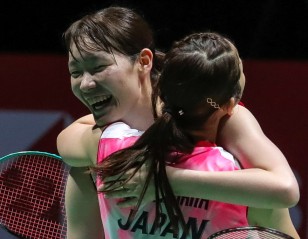
Great Comeback Falls Short – Basel 2019 26 August 2019
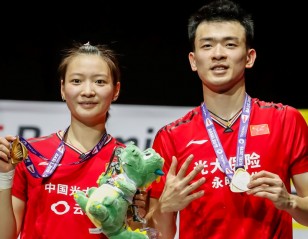
Mixed Doubles ‘Great Wall’ Intact – Basel 2019 26 August 2019
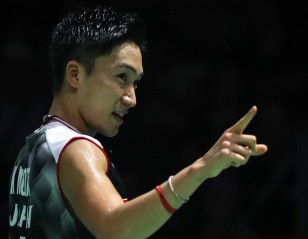
Antonsen Bows to Momota’s Class – Basel 2019 25 August 2019
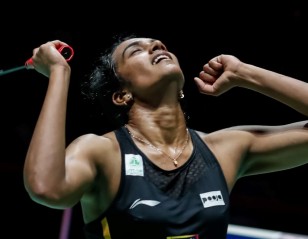
Gold – At Last! – Basel 2019 25 August 2019
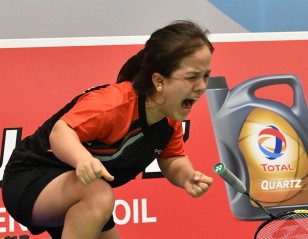
Poveda Makes It a First for Peru – Basel 2019 25 August 2019
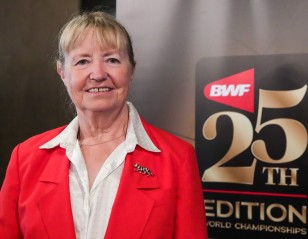
Legend Who Broke Records and Paved the Way for Future Stars –... 25 August 2019
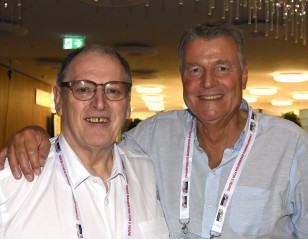
Ray’s a Real Sport – 25th Edition World C’Ships 25 August 2019
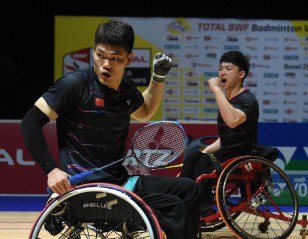
China Take Two Gold – Basel 2019 25 August 2019
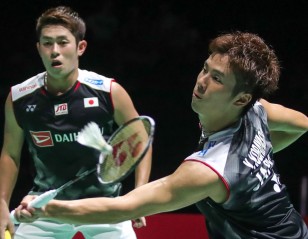
‘Upsetting’ Night for China – Basel 2019 24 August 2019
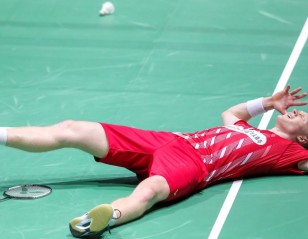
Antonsen’s ‘Insane’ Dream – Basel 2019 24 August 2019
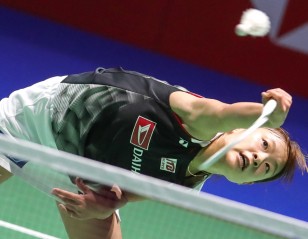
Glasgow ’17 on the Cards – Basel 2019 24 August 2019
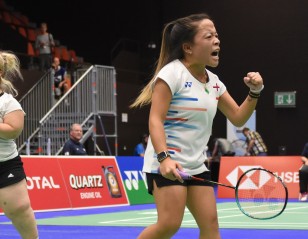
Five Down, Seventeen to Go – Basel 2019 24 August 2019
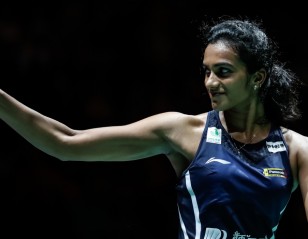
Sindhu Assures Herself: Tomorrow Will Be Different 24 August 2019
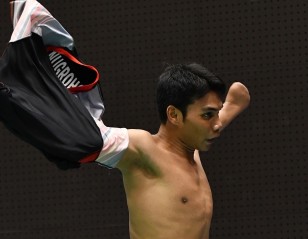
Para Badminton Athletes Turn It Up a Notch – Basel 2019 24 August 2019
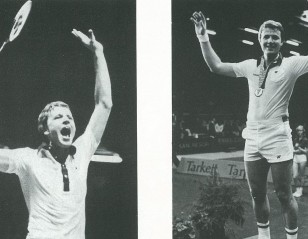
Flaming Dane Set Courts Aglow – 25th Edition World C’Ships 24 August 2019
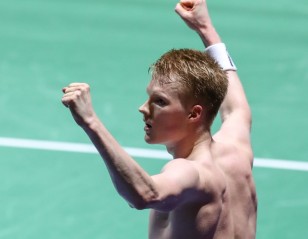
Antonsen Delivers for Europe – Basel 2019 23 August 2019
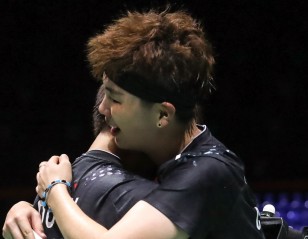
Du/Li Stand Tall After 2-Hour Epic – Basel 2019 23 August 2019
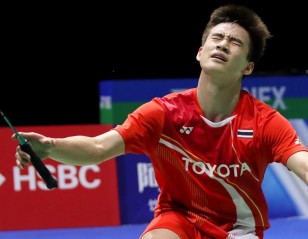
Kantaphon Leads Thailand’s Record Haul – Basel 2019 23 August 2019
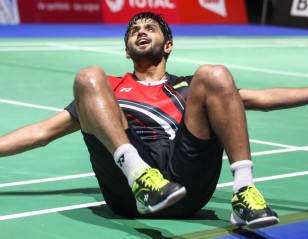
Sensational Session for India – Basel 2019 23 August 2019
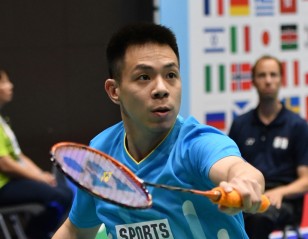
Tall Order for Standing Men – Basel 2019 23 August 2019
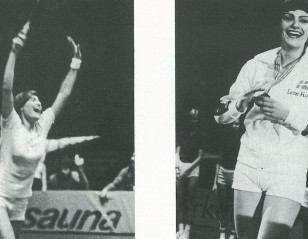
Crowd Pleasing Superstar – 25th Edition World C’Ships 23 August 2019
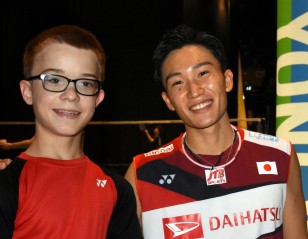
Teenage Shuttler Meets His Idol – Basel 2019 23 August 2019
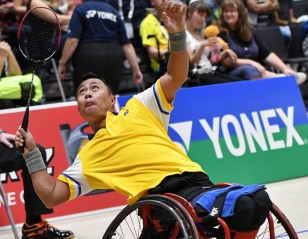
Wheelchair Top Seed Toppled – Basel 2019 23 August 2019
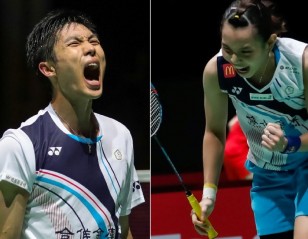
‘Two’ Much Trouble! – Basel 2019 22 August 2019
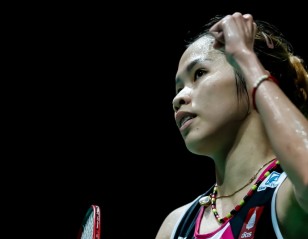
Intanon Survives Scare – Basel 2019 22 August 2019
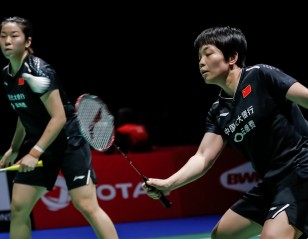
BWF Statement – TOTAL BWF World Championships 2019 22 August 2019
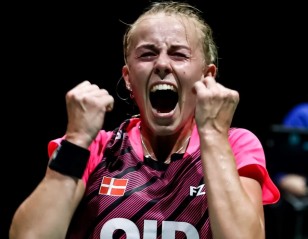
Belated Birthday Blitz! – Basel 2019 22 August 2019
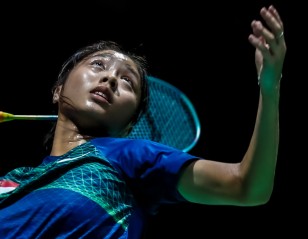
Back Problem Doesn’t Stall Jia Min – Basel 2019 22 August 2019
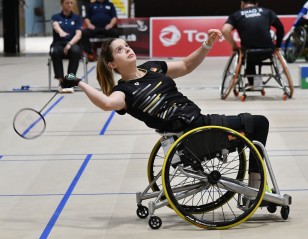
Girl Power – Basel 2019 22 August 2019
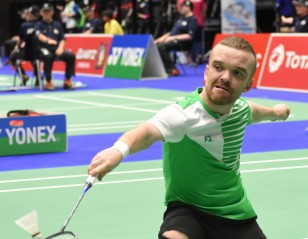
Group Rounds Move into Main Draw – Basel 2019 22 August 2019
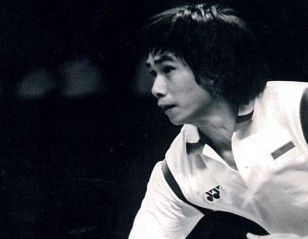
Lessons from the Seventies – 25th Edition World C’Ships 22 August 2019
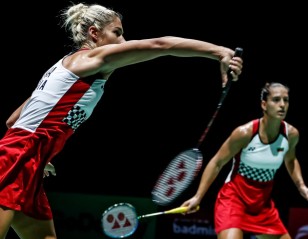
Women Getting in Gear – Basel 2019 21 August 2019
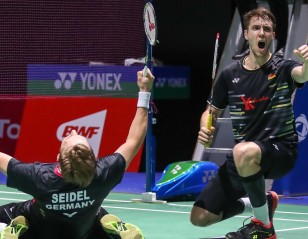
German Shock for Fifth Seeds – Basel 2019 21 August 2019
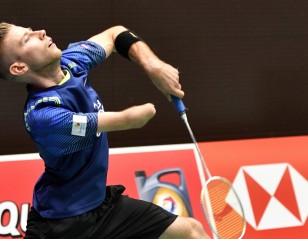
I Feel at Home says Mroz – Basel 2019 21 August 2019
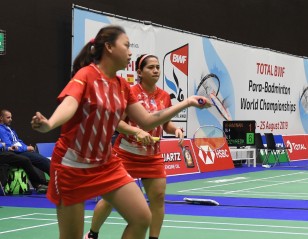
The Power of the Mind – Basel 2019 21 August 2019
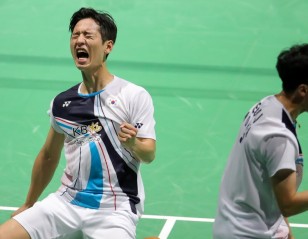
Minions Crash Land at Worlds Yet Again – Basel 2019 21 August 2019
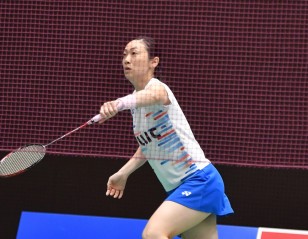
Suzuki Banks on Experience Over Age – Basel 2019 21 August 2019
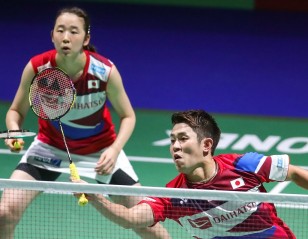
Nagahara ‘Mixing It Up’ – Basel 2019 20 August 2019
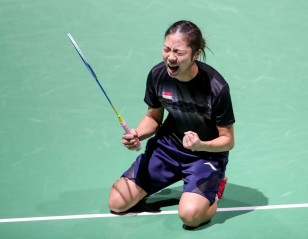
Jia Min Ousts Top Seed – Basel 2019 20 August 2019
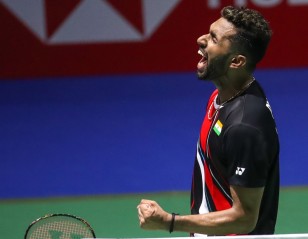
Lin’s Challenge Sputters Out – Basel 2019 20 August 2019
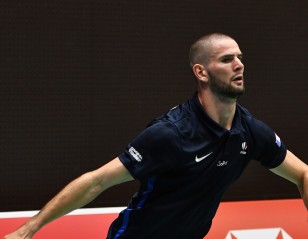
Mazur On Track to Retain Crown – Basel 2019 20 August 2019
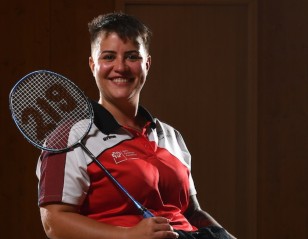
Trading One Set of Wheels for Another 20 August 2019
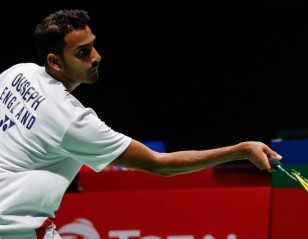
Ouseph Exits Stage, Bids Goodbye – Basel 2019 19 August 2019
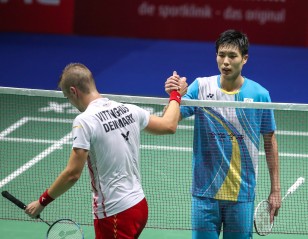
Chou Survives Danish Test – Basel 2019 19 August 2019

A Title Dedicated to a Battle Against Cancer 19 August 2019
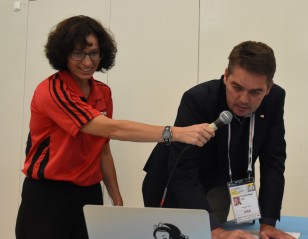
Draw Provides an Even Playing Field for All 18 August 2019
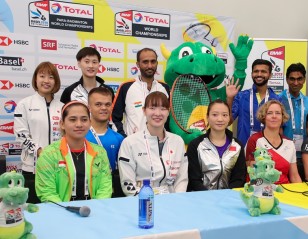
Para-llel Event a Unique Experience for Badminton Fraternity 18 August 2019
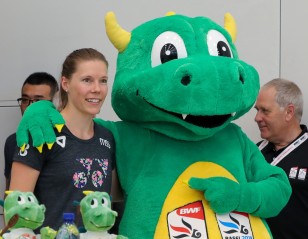
An Occasion to Cherish for Jaquet – Basel 2019 18 August 2019
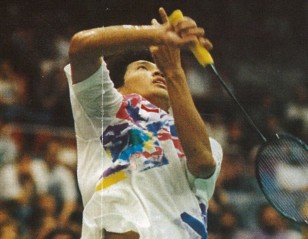
‘100 Watt Smash’ that Lit Up Lausanne – 25th Edition World C’Ships 17 August 2019
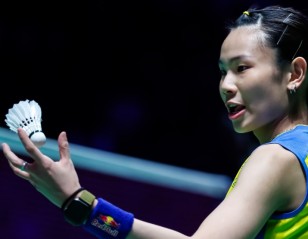
Preview: Worlds of Opportunity 17 August 2019
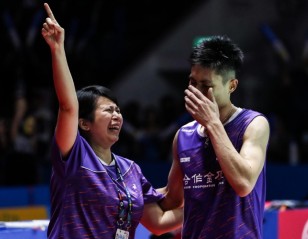
By Chou’s Side 16 August 2019
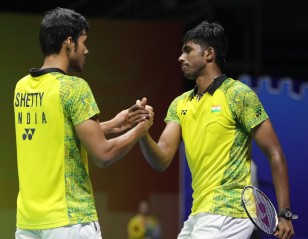
Satwik/Chirag to Miss World Championships 16 August 2019
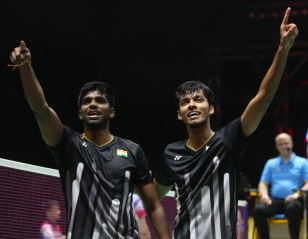
Indian Pair Blazes a Trail 15 August 2019
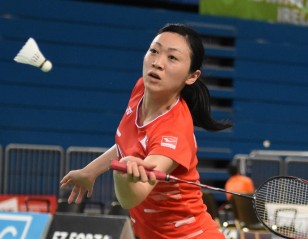
Awesome Threesome of SU5 – Para Badminton World C’Ships 14 August 2019
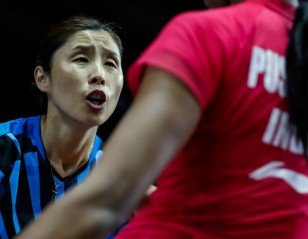
Life Lessons, From Coach Kim Ji Hyun 14 August 2019
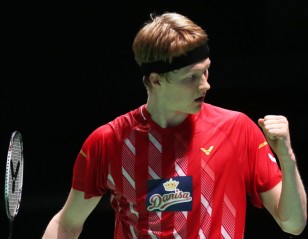
Free of Pressure, Antonsen Senses His Chance 13 August 2019
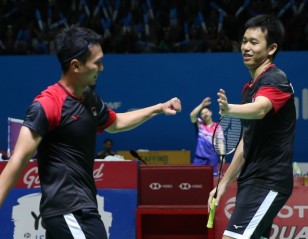
Ahsan/Hendra Play it Cool Despite Hot Form 11 August 2019
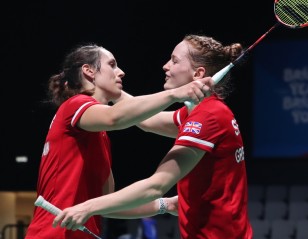
England Duo Anticipate Fruitful Week in Basel 10 August 2019

Women’s Singles Re-Draw – TOTAL BWF World Championships 2019 9 August 2019
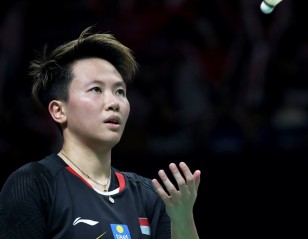
Winny Will Need Support: Liliyana Natsir 8 August 2019
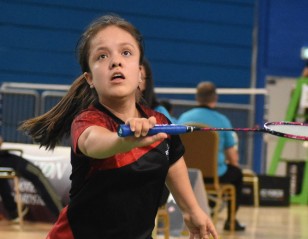
Sports Upbringing Gives Edge to Poveda 7 August 2019
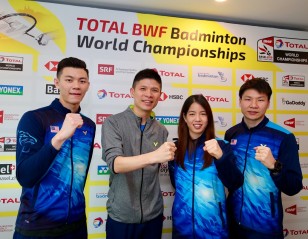
World Championships Draw Released 5 August 2019
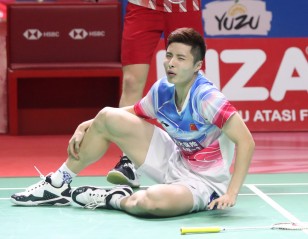
Marin, Shi Join Axelsen on Sidelines 5 August 2019
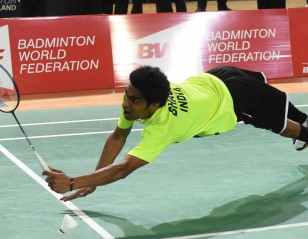
New Para Badminton Chapter Unfolds in Basel 1 August 2019
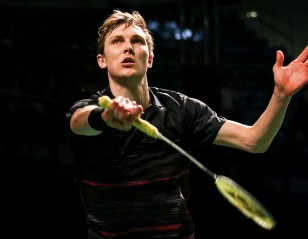
Injured Axelsen Withdraws From World Championships 31 July 2019
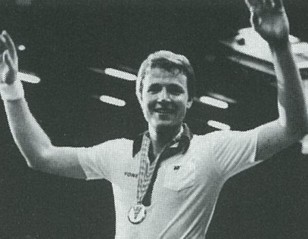
From Malmo to Basel – 25th Edition World C’Ships 30 July 2019
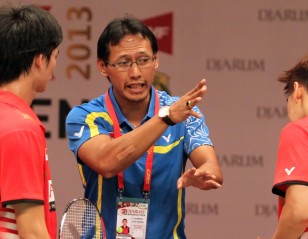
Revisiting a Hero: Sigit Budiarto 11 July 2019
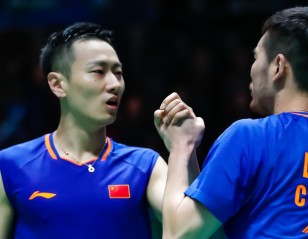
History Beckons Zhang Nan 10 July 2019
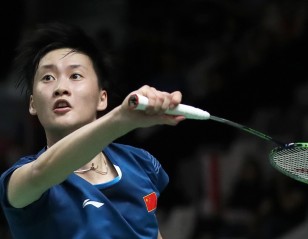
Chen To Lead China’s Charge 9 July 2019
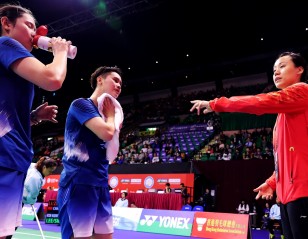
19 Days Left To Register for World Coaching Conference 26 June 2019
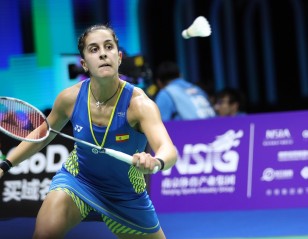
Marin on the Mend and Eyes Return 22 June 2019
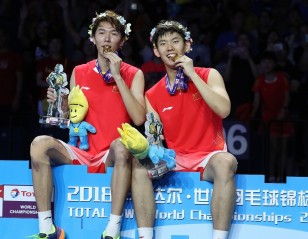
Two Months To Go – World C’Ships Countdown 19 June 2019

Li & Liu – Stepping Up When It Matters 7 June 2019
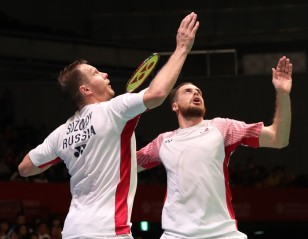
Ivanov & Sozonov Rekindle The Fire 3 June 2019
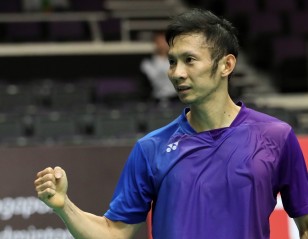
Tien Minh – Veteran Still Chasing His Dreams 2 June 2019
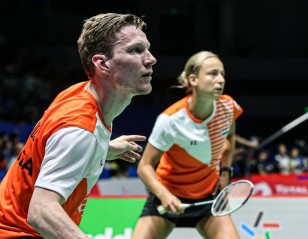
Confidence Boost for Dutch Duo 1 June 2019
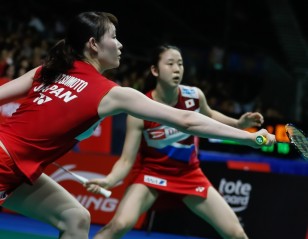
Matsumoto & Nagahara: Rapid Ascent to Pinnacle 8 May 2019

Tai Eases into Top Gear 25 April 2019
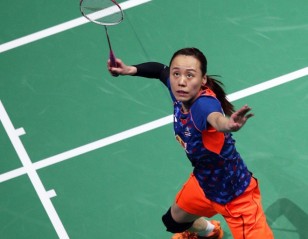
Zhao Yunlei Star Speaker at Coaching Conference 24 April 2019
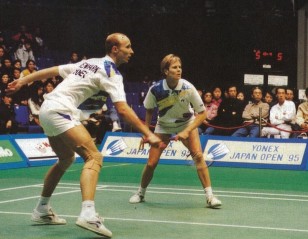
‘The Physical Level Has Gone Up’ 22 April 2019
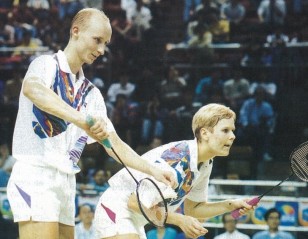
Memories of Lausanne 1995 20 April 2019
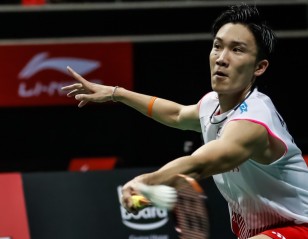
Momota Sets the Pace, but Speedbreakers Lurk 18 April 2019

BWF and Total Celebrate Five Years of Partnership 18 April 2019

Badminton Thrust into Bright Lights – World C’Ships 13 March 2019

Gold and Glory for Arbi – Throwback ’95 World C’ships 19 February 2019

GoDaddy Extends Major Events Partnership with BWF 11 February 2019
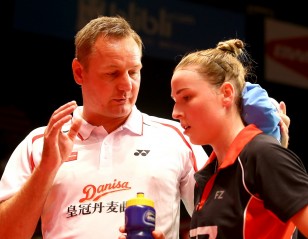
Star speakers assembled for BWF World Coaching Conference 2019 30 January 2019
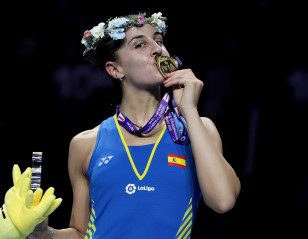
Singles Champions – Down the Ages 20 December 2018
